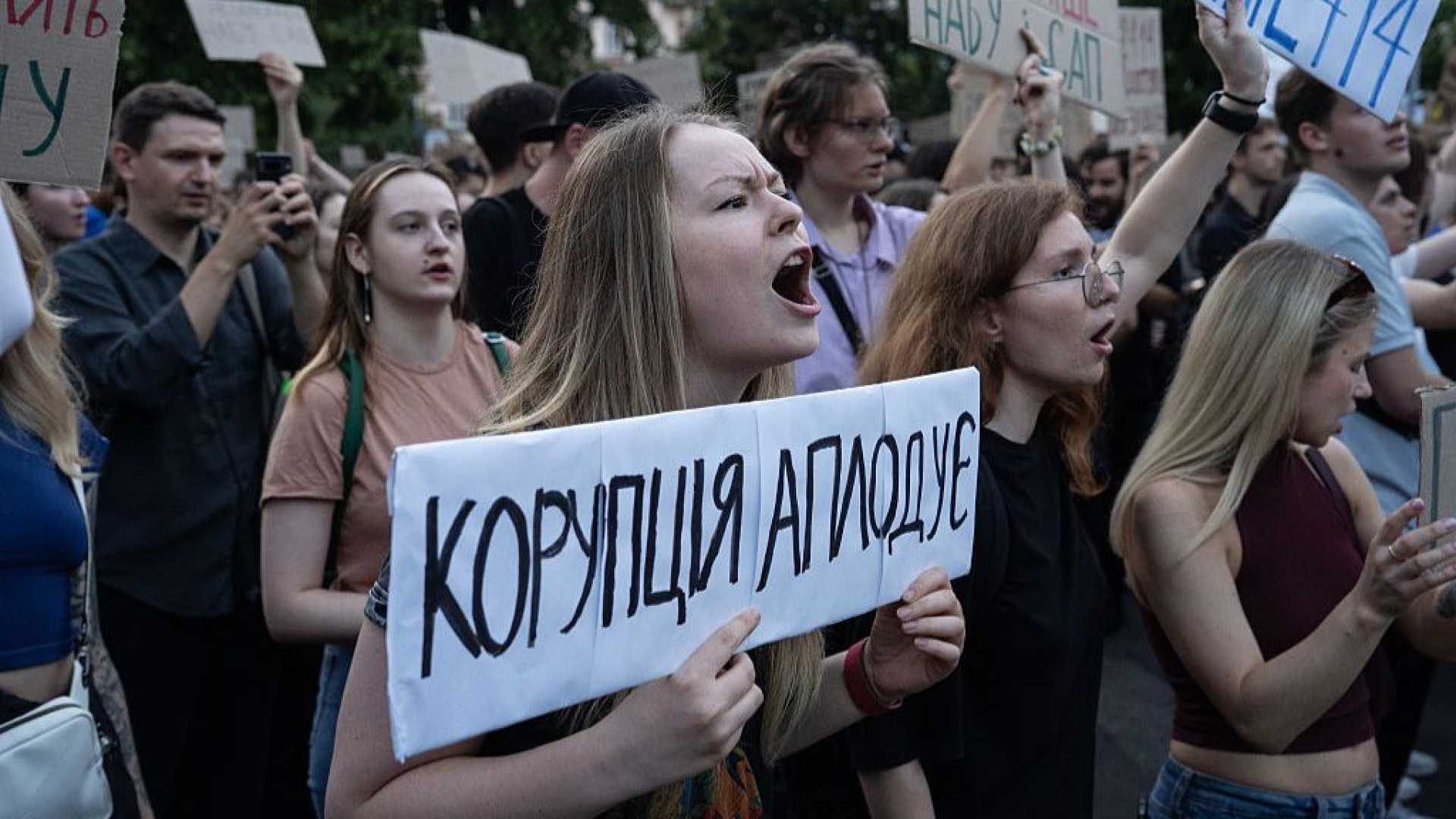News
Protests Erupt as Zelensky Signs Controversial Anti-Corruption Bill

KYIV, Ukraine — President Volodymyr Zelensky signed a contentious bill into law on July 22 that critics warn undermines Ukraine’s anti-corruption framework, leading to widespread protests across the nation. The new legislation grants significant authority to the prosecutor general over the National Anti-Corruption Bureau (NABU) and the Specialized Anti-Corruption Prosecutor’s Office (SAPO), raising fears of political influence over investigations.
Following the bill’s passage, thousands of demonstrators gathered in Kyiv, Lviv, Dnipro, and Odesa, expressing their disapproval with slogans like, “We chose Europe, not autocracy.” This marked the largest anti-government demonstration in Ukraine since the onset of Russia’s full-scale invasion in February 2022.
Zelensky argued that the reforms were necessary to clear the agencies of alleged Russian infiltration and inefficiency. He stated, “There is no rational explanation for why criminal proceedings worth billions have been lying dormant for years.” Critics, however, view these measures as a significant rollback of anti-corruption efforts initiated after Ukraine’s 2014 Maidan Revolution.
During his address, Zelensky defended the bill, asserting that both NABU and SAPO would continue to function. Yet, opponents claim the changes effectively turn them into extensions of the prosecutor general’s office, compromising their independence. Transparency International Ukraine labeled the legislation “a massive setback” for anti-corruption reform, emphasizing that it threatens Ukraine’s aspirations for European Union membership.
As protests escalated, officials from the European Union voiced their concerns. European Commissioner for Enlargement, Marta Kos, described the law as a “serious step back” and cautioned that the EU’s financial assistance to Ukraine is contingent on solid anti-corruption measures. Public sentiment across Ukraine reflects deep distrust, with several protesters accusing the government of prioritizing personal loyalties over systemic integrity.
Notably, Kyiv’s Mayor Vitali Klitschko also joined the protesters, criticizing the law for dragging Ukraine towards authoritarianism. He remarked, “This definitely does not bring Ukraine closer to the European Union or democracy.”
The passage of the law follows a series of raids and arrests involving NABU officials, which the government justifies as necessary to root out corruption. However, many citizens fear that these measures signal a worrying trend towards decreased transparency and accountability in governance.
As the protests continue, Zelensky faces growing pressure from both the populace and the international community to reconsider the implications of the new law on Ukraine’s anti-corruption institutions and its path towards reform.












